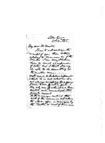This is the word used by Bulmer to refer to 'mother in law'. As Bulmer said (Campbell 1999: 14):
I always found mothers make strong opposition to their daughter marrying any one they knew or cared for, but this was because they were not allowed to have any intercourse or even to speak to their sons-in-law. They became guiaban, the word guiaban seems to be from guian, a tomahawk, so I suppose the giving away of the daughter signified that all connection between the man was cut off.. If a woman will not become guiaban it is a practical sign that she will not allow the marriage, or at all events that she strongly objects and so silence gives consent. I once asked a man why the guiaban treated her son-in-law so. Well said he, she does not want to let on that she knows her daughter is married. This was his explanation, but I suppose there was some deeper reason than this, a reason we can only surmise15. My own opinion is, it is on account of the totem system. The guiaban is of the same totem as her daughter, and this being so there would be no legal objection to her having intercourse with her daughter's husband. So she keeps out of his way altogether.
Howitt and Fison (1880: 237) lists this as meaning 'daughter's husband':
Que-a-bun - Daughter's husband (female speaking).
